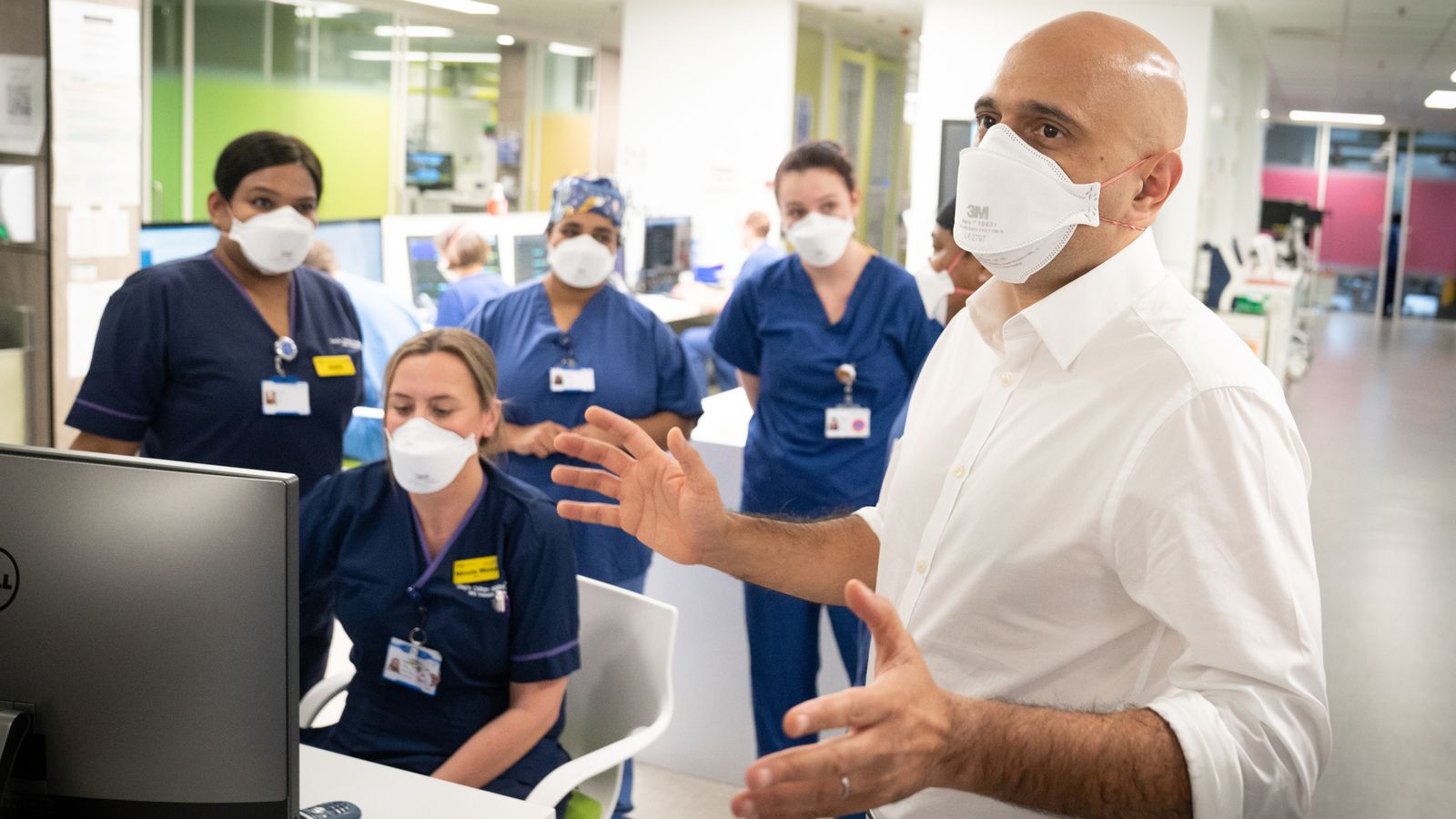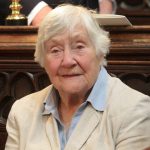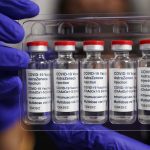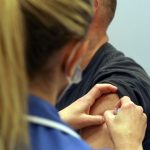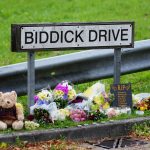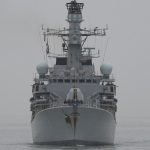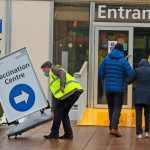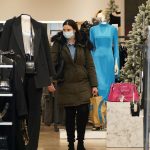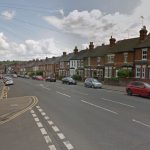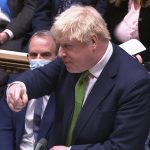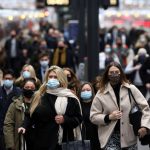The NHS is facing a “rocky few weeks ahead” as it contends with a wave of Omicron cases, the health secretary has said – as two major incidents were declared in England due to pressures caused by the COVID variant’s spread.
Speaking during a visit to King’s College Hospital in south London, Sajid Javid said these were “challenging times” for the health service and the “best thing” people could do was get their COVID-19 booster jab.
Follow live COVID updates from the UK and around the world
Please use Chrome browser for a more accessible video player
“We know now that Omicron is less severe… and we certainly know that once you get boosted that your chance of hospitalisation, our latest analysis shows, is almost 90% less than it was with Delta,” he said.
The health secretary said he had been told that in the hospital’s intensive care unit for COVID patients an estimated 70% of patients were unvaccinated.
His comments come after emergency services have said there is a civil emergency in Staffordshire and Stoke-on-Trent.
Multiple agencies including the NHS, Fire and Rescue Service, police and local authorities will step up co-ordination of their response to the surging infections and key workers needing to isolate.
COVID-19: No decision on whether Six Nations rugby matches can go ahead in Wales, Drakeford says
COVID-19: Workers at North Yorkshire County Council asked to take on social care roles amid staff absences
COVID-19: Top holiday destinations revealed as easing of UK travel restrictions sparks bookings surge
Northamptonshire has also declared a system-wide major incident, with hospitals, care homes and emergency services subject to a shortage of staff and facing increased demand because of coronavirus, Northamptonshire Police said.
It comes after it was announced that some 200 Armed Forces personnel will be sent to support the NHS in London as hospitals grapple with staff shortages.
Military medics will assist NHS doctors and nurses with patient care, while general duty personnel will help fill gaps caused by other absences.
Please use Chrome browser for a more accessible video player
Separately, 32 military co-responders are being provided to support the South Central Ambulance Service – working alongside paramedics until the end of March.
Latest NHS England figures show 39,142 NHS staff at hospital trusts were absent because of COVID on 2 January, an increase of 59% on the week before (24,632) and more than three times the level it was at the start of December.
As of Thursday, 17 hospital trusts in England had declared critical incidents – signalling there are fears that priority services cannot be safely delivered.
NHS national medical director Professor Stephen Powis said rising case numbers were “piling even more pressure” on workers.
Dr Chaand Nagpaul, council chairman of the British Medical Association, told Sky News “we have never known this level of staff absence before” and the pressures facing the health service and GPs are “not normal”.
And he warned the government that it cannot “just wait to ride this out” and must do three things to relieve unprecedented pressure on the NHS.
Asked about hospitals declaring critical incidents, Mr Javid said there was a need for health services to “work together” because of the “workforce pressures” facing hospitals.
